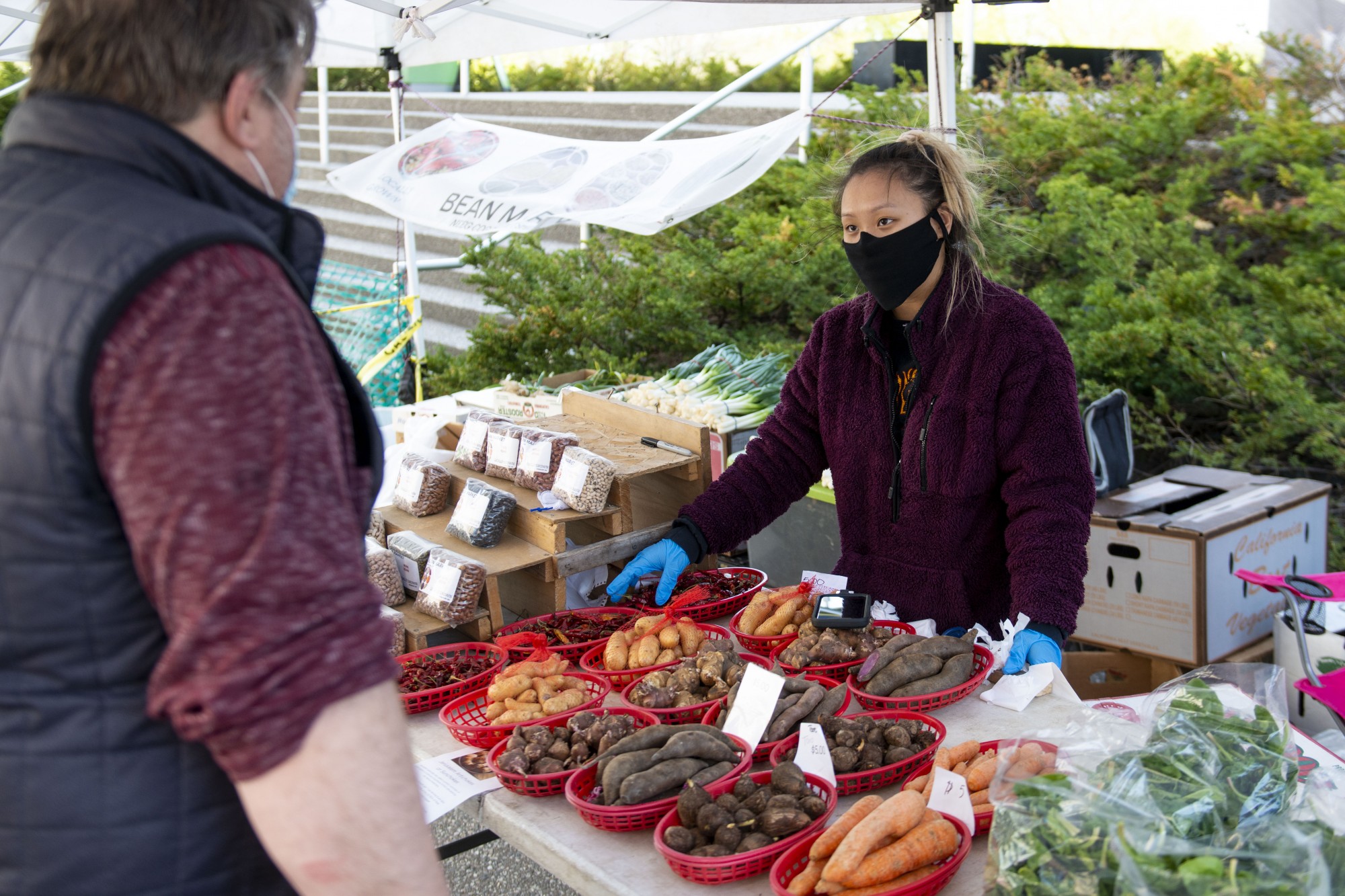The opening of farmers markets in the Twin Cities signals the beginning of summer, with fresh fruits, bundles of flowers and food trucks lined up along the streets.
The experience of walking among vendors with your little canvas tote is the treat you give yourself after finals, when you can finally take a deep breath and bite into the croissant from that one booth that you’ve been thinking about all semester.
This year, Twin Cities farmers markets are doing things a little differently. They’ll still be open since they are considered essential grocery providers — thank goodness — but due to COVID-19, they’ve set some regulations in place.
To make sure that you’re fully prepared and don’t get turned away at the gate, A&E has put together this guide to help you get the best out of your long-awaited farmers market experience during this pandemic.
What’s open this season
Most markets will be open this season, with a few exceptions, and will run throughout the summer. However, some markets have been postponed this summer, like the Nicollet Mall Market, so it’s best to keep an eye on social media and plan your trip that way.
Hours: every Saturday from 9 a.m. to 1 p.m. starting in May through October.
Address: 704 S. 2nd St., Minneapolis
Minneapolis Farmers Market – Lyndale
Hours: open daily from 6 a.m. to 1 p.m.
Address: 312 E. Lyndale Ave. N., Minneapolis
Hours: Saturdays from 8 a.m. to 1 p.m. and, beginning in June, Tuesdays from 3 p.m. to 7 p.m.
Address: Moon Palace Books, 3032 Minnehaha Ave., Minneapolis
Hours: Saturdays from 7 a.m. to 1 p.m. and Sundays from 8 a.m. to 1 p.m.
Address: 290 5th St. E., St. Paul
Safety tips for farmers market season
Each farmers market has outlined strict guidelines for attendance. The guidelines are similar to those you would run into at a grocery store, just a little stricter to keep their vendors and staff safe.
Wear a mask
This might be very obvious, but all farmers markets are BYOM (bring your own mask, folks!). At almost all of the markets this season, there will be staff members at the gate who are looking to make sure that attendees are following the rules. So this means that if you don’t have a mask, you’re likely to get turned away or asked to buy one from a vendor if that’s an option.
They ask that you do this not only for the safety of other attendees but for the safety of the vendors. Many of them come from outside of the Twin Cities area, meaning there’s a high risk they could carry the virus back to their hometowns and loved ones. If you’re inclined not to wear a mask, remember those flu shot stickers that the University hands out: “Do it for the herd.”
Keep your hands and your reusable bags to yourself
Not to make you feel like you’re in kindergarten again, but please make sure to keep your hands, and your bags, to yourself. Do not touch the produce or any of the products that are for sale before asking a vendor. Most of them will be happy to serve you and might actually prefer to do so.
Additionally, you will want to keep your reusable bags to yourself. The bags have been in your home, and touching your hands often, so don’t swing it around. Better yet, wash it! Throw it in the laundry! Try your best to keep it clean. You’re transporting products to and from places, so even if you’re not cleaning it for others, do it for yourself.
Keep your distance from others and follow the signs
Some, if not all, of these farmers markets have designated entrance points to keep track of the number of people attending the market. Do not try to hop over a barrier to get in — they’ve set up their system for a reason! There will also be signs guiding you throughout the market to limit socialization and keep people moving. It will be tempting to stick around and take a peek at all a vendor has to offer, but if you know you don’t need it, keep walking. Vendors might also be placed six feet behind a barrier for their safety.
Also, if you can help it, try to go alone. All farmers markets are encouraging shoppers to send one member of a household out for groceries instead of attending in large groups. If you live with roommates, ask everyone to make a list of what they want, check the preorder list on the market’s website and make a game out of it. See who can shop the fastest, the cheapest or the most efficient each week. Reward the winner with a fancy bar of soap made with organic goat’s milk or another small gift.
The bottom line is to just keep yourself and others as safe as possible. While it’s definitely not going to be the farmers market experience you envisioned when the weather started getting warmer, support our local growers and makers by taking these precautions.








